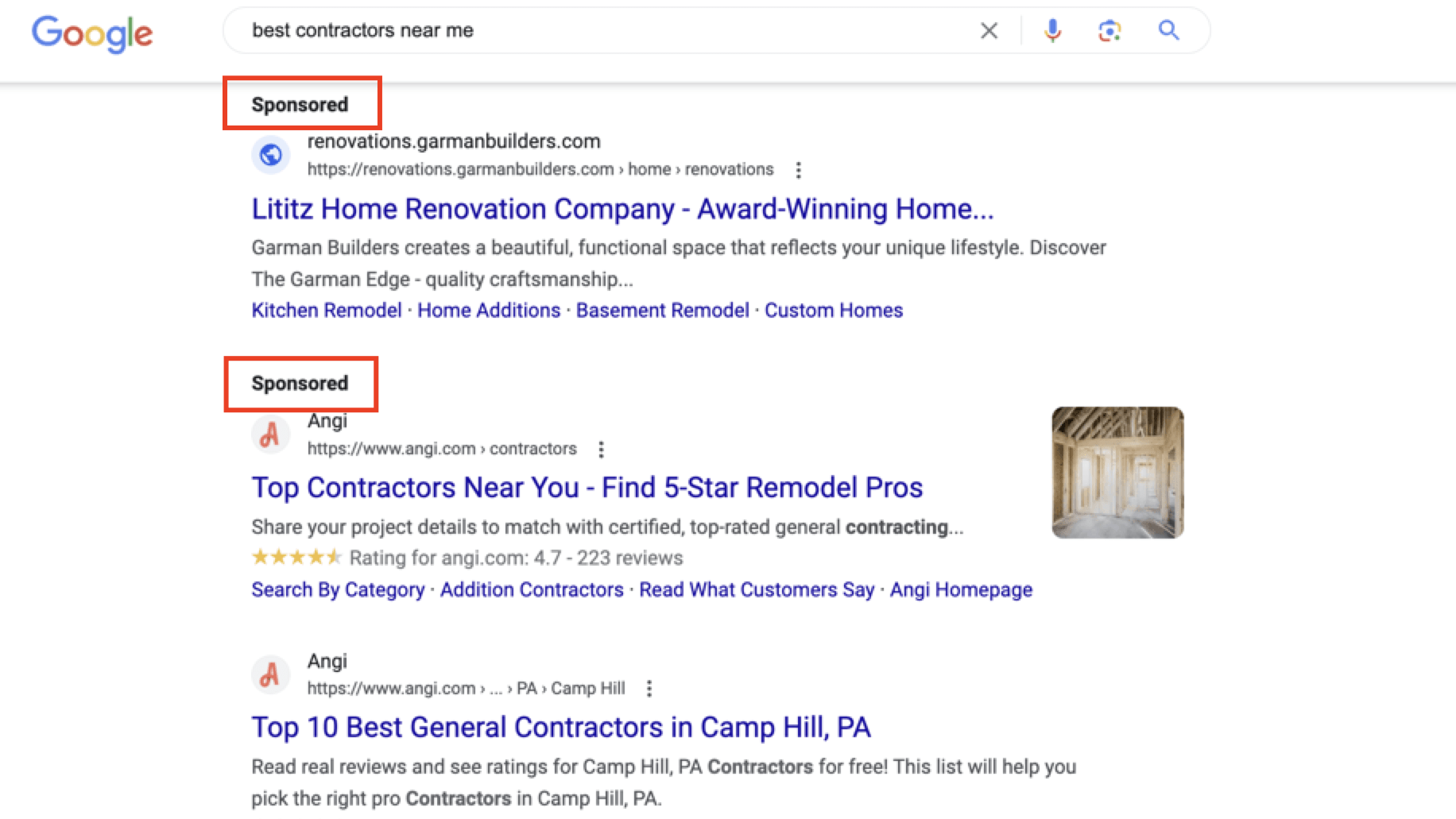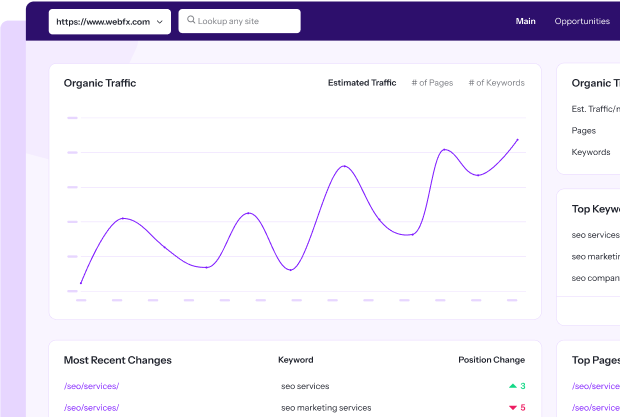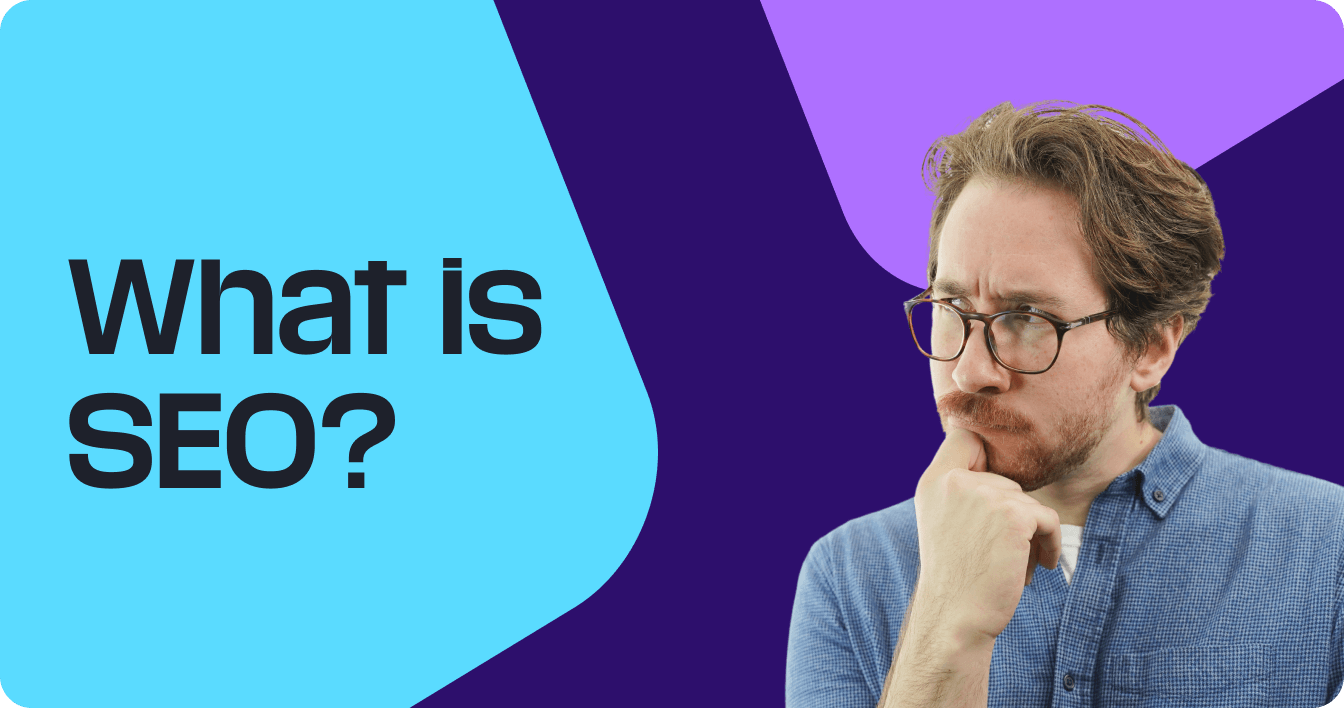What’s the difference between SEO and SEM?
The difference between SEO and SEM is that SEO focuses on performing website optimizations to get more traffic from and higher rankings in organic (non-paid) search results, while SEM focuses on implementing tactics to get more traffic from and higher rankings in both organic and paid search.
Search engine optimization (SEO) and search engine marketing (SEM) are two digital marketing strategies to help your site rank well in search engine results pages (SERPs) and more. While they may seem interchangeable, these terms are distinct.
So, SEO vs. SEM — what’s the difference?
This page will break down SEM and SEO through the following sections:
- What is SEO?
- What is SEM?
- What’s the difference: SEM vs. SEO
- SEO vs. SEM: Which is better
- Use cases for SEO and SEM
- Do I need both? When to choose SEO vs. SEM
Read on to learn more about SEO and SEM and find out which could be best for your business.
What is SEO?
SEO is the process of improving a website to help it earn more traffic in SERPs. SEO includes various technical and content-driven approaches to drive traffic to your site without paid advertising.
What is SEM?
SEM is the process of promoting website visibility in search engines. This strategy includes all types of search results, including options like pay-per click (PPC) advertising.
What’s the difference: SEM vs. SEO
SEM and SEO may be related, but there are key differences that separate them. Here are the top three:
Let’s discuss each one below.
1. They target different types of traffic
The main difference between SEM and SEO is the type of traffic they focus on. The two strategies use search engines as their optimization channel, but they optimize for different audiences.
SEO focuses primarily organic or unpaid traffic, while SEM covers all aspects of the SERPs, like advertising and paid results. You could use SEO as part of your overall SEM plan since you will target organic traffic either way.
On the SERPs, organic results come below the paid ones, which have a “Sponsored” tag to identify them:

However, SEO cannot help directly with your PPC — you’ll need two complementary strategies.
2. They have different timelines
SEO is an ongoing process that takes anywhere from six months to a full year to start showing results. SEM can ramp up your metrics rather quickly, but they aren’t long-term results. Each one can help your traffic, leads, and conversions, but SEO is a long-haul approach for bettering your site.
Think of SEM, specifically the paid tactics, as a quick jolt to your website. You will see more traffic quickly, but you will have to keep creating ads and
3. They have different costs
SEO and SEM also have different costs. Depending on your in-house resources, your pricing will look different for each service. However, in general, SEO costs more upfront, and you must wait longer for results.
While many of the changes you make for SEO are free, it costs money to create a website if you don’t have one, hire SEO experts, and create a plan. With SEM, you can pay less for advertising and get a quick boost of traffic to your website.
Over time, the cost of SEO will level out, and the ongoing results will help you see more profit over a longer period. With SEM, you have to continually fund and create ads, which can cost more over time.
SEO vs. SEM: Which is better
SEO is better for driving long-term results and improving your website, while SEM is better for incorporating paid and organic strategies. Each type of marketing has its benefits, and the two strategies are meant to work together, demonstrating how SEO and PPC work together to maximize your performance and visibility in search engines.
Neither one is better overall — there are aspects of both that can help your business thrive depending on your goals.
Use cases for SEO and SEM
So, what specific uses can SEO and SEM offer? Here’s a quick breakdown to help you differentiate the two.
SEO applications include the following:
- Targeting keywords with web content
- Creating an indexable website
- Building out sitemaps to help crawlers
- Optimizing your web design to keep users interested
Here are some specific applications of SEM:
- Creating compelling ad copy to attract clicks
- Paying for PPC services and ads on the SERPs
- Targeting keywords with ads to rank higher in SERPs
- Optimizing landing pages to encourage conversions
Do I need both? When to choose SEO vs. SEM
In general, it’s best to use a mix of SEO and SEM since the strategies complement each other so well. Which one you should use also depends on your goals and your industries, as some more regulated industries cannot advertise via search.
CBD companies, for example, cannot advertise via Google Ads until receiving specific certifications.
For example, if you want to promote a new product and get traffic to your site fast, using a combination of PPC and SEO can help you get an instant boost of traffic to your new page. However, if you want to improve your user experience (UX) and design, SEO might be a better target.
In general, most websites should be using SEO to improve their rankings. The real question is how much other SEM techniques can expand your market and grow your results.
Cut Your SEO Time in Half

Discover more about SEO and SEM
Knowing when and how to use different digital marketing approaches like SEO and SEM can help you earn more traffic and conversions. If you want to keep learning about SEO, you can find more informational articles here on seo.com!
Want even more insight into your plan? Feel free to contact us online!

$3bn+
revenue driven for clients



Add WebFX to your content marketing toolbox today
Get SEO Proposal$3bn+
revenue driven for clients



Add WebFX to your content marketing toolbox today
Get SEO Proposal



